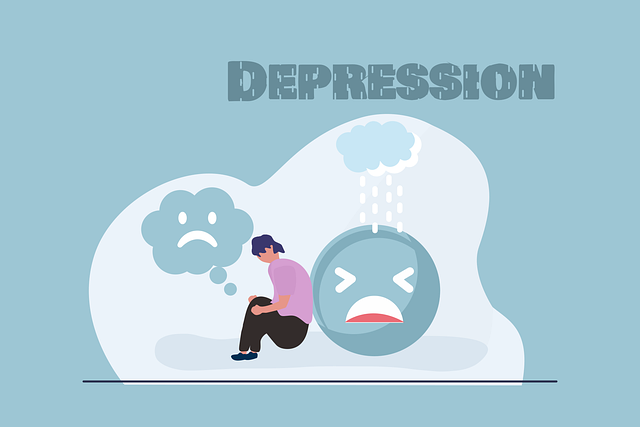Greenwood Village Biofeedback Therapy offers a comprehensive approach to mental health care, addressing unique challenges like client expectations and insurance navigation. Their focus on stigma reduction creates a supportive environment for practitioners to utilize tailored stress management techniques. With a robust risk management plan, they assess, mitigate, and proactively address potential risks, ensuring client and practitioner safety. This dynamic approach integrates cultural sensitivity, trauma support, and continuous improvement, providing a cutting-edge, safe, and transformative therapeutic experience centered around Greenwood Village Biofeedback Therapy's expertise.
At Greenwood Village Biofeedback Therapy, recognizing and managing risks is integral to providing quality mental health care. This article delves into the essential practice of risk management planning for professionals in the field. We explore strategies tailored to Greenwood Village’s unique context, covering understanding risk dynamics in mental health, creating a comprehensive plan, and effective implementation & review. By adopting these measures, therapists can ensure safe, supportive environments conducive to positive patient outcomes.
- Understanding Risk in Mental Health Practice at Greenwood Village Biofeedback Therapy
- Developing a Comprehensive Risk Management Plan
- Implementing and Reviewing the Plan Effectively
Understanding Risk in Mental Health Practice at Greenwood Village Biofeedback Therapy

At Greenwood Village Biofeedback Therapy, we recognize that mental health professionals face a unique set of risks in their day-to-day practice. Understanding risk is a cornerstone of our approach to developing robust risk management plans. We acknowledge that managing client expectations, dealing with complex cases, and navigating the intricate web of insurance policies can be overwhelming. Our therapists are trained to identify potential hazards, including the impact of stigma associated with mental illness, which significantly contributes to stress and burnout.
Through proactive mental illness stigma reduction efforts, we foster a supportive environment where clients feel comfortable seeking therapy. Additionally, our comprehensive risk management strategies focus on effective stress management techniques tailored to each professional’s needs. By prioritizing burnout prevention, Greenwood Village Biofeedback Therapy ensures that its practitioners maintain optimal well-being, enabling them to provide exceptional care to their clients.
Developing a Comprehensive Risk Management Plan

Developing a comprehensive risk management plan is an essential step for mental health professionals to ensure the safety and well-being of both their clients and themselves, especially in the context of Greenwood Village Biofeedback Therapy. This process involves meticulously evaluating potential risks within the therapeutic setting and implementing tailored strategies to mitigate them. A robust plan should encompass various aspects such as identifying specific client populations with heightened risk factors, establishing clear crisis intervention protocols, and incorporating evidence-based stress reduction methods like Social Skills Training to foster a supportive environment.
By integrating these proactive measures, mental health professionals can effectively navigate challenging situations while adhering to ethical standards. For instance, regular risk assessments can help identify clients at higher risk of self-harm or violence, enabling therapists to implement targeted interventions promptly. Such a structured approach not only enhances client outcomes but also protects practitioners from potential liabilities, ensuring that Greenwood Village Biofeedback Therapy remains a safe and transformative experience for all involved.
Implementing and Reviewing the Plan Effectively

Implementing and reviewing risk management plans is a dynamic process that requires consistent commitment from mental health professionals. At Greenwood Village Biofeedback Therapy, we understand that effective risk management goes beyond initial setup. It’s about embedding a culture of continuous evaluation and improvement within the practice. Regularly scheduled reviews allow professionals to assess the impact of their strategies, ensuring they remain relevant and impactful in addressing emerging challenges. This proactive approach fosters a safe and supportive environment for both clients and practitioners, enhancing the quality of care provided.
By integrating cultural sensitivity in mental healthcare practice alongside stress reduction methods and trauma support services, professionals can tailor their risk management plans to meet diverse client needs. These integrated approaches not only mitigate risks but also promote holistic healing and well-being. Regular reviews facilitate adjustments based on evolving research, regulatory changes, and client feedback, ensuring the plan remains a living document that adapts to the dynamic nature of mental health care.
Mental health professionals, like those at Greenwood Village Biofeedback Therapy, must prioritize risk management planning to ensure a safe and supportive environment for their clients. By understanding unique risks within their practice, developing tailored strategies, and consistently reviewing and updating plans, therapists can mitigate potential harm and foster a culture of resilience. Effective risk management is not just about compliance; it empowers professionals to enhance client outcomes and maintain the integrity of their work.













